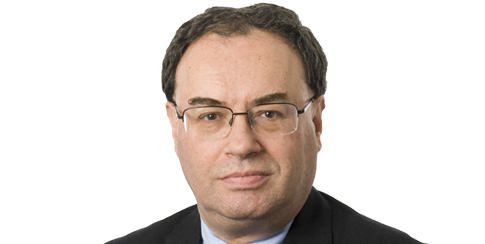The Financial Conduct Authority's final report into the asset management industry was broadly welcomed by the passive investment sector even as some of the findings from the interim report were watered down following further consultation.
The chief executive of the FCA Andrew Bailey said the watchdog had listened carefully to the responses generated by its interim report late last year. "We have put together a comprehensive package of reforms that will make competition work better and help both retail and institutional investors to make their money work well for the," he said.
The FCA said it will support the introduction of the rules on disclosing single all-in fee to investors that comes into force with the introduction of Mifid II in January next year and recommends that standardised disclosure of costs and charges to institutional investors should be introduced.
However, in the executive summary to the report, the FCA moved to quash what it said was a perception among respondents that the interim report findings published late last year had suggested passive investment was preferable to active funds.
"This is not the case," the report stated. "Rather than focusing on one strategy over another, we think it is important that investors understand both the total cost of investing and the objectives of the fund or mandate they are investing in, so that they can choose the product that best meets their needs."
Still, the FCA's desire for greater transparency on fees and performance drew warm words from Sean Hagerty, European managing director for Vanguard. "This is an important moment for UK investors," he said. "We support the FCA's efforts to lower the cost and complexity of investing. Consumers should always benefit from lower prices, better quality products, and clearer information."
Tom McPhail, head of policy at Hargreaves Lansdown, said the report struck a "sensible balance between disruption and stability" and "clearly took account of investors' long-term best interests."
The report noted that passive funds - after costs - would generally underperform against the relevant market benchmark and added that a cheap passive fund which closely tracks the index will have a low tracking difference and generate net returns close to the market benchmark.
Elsewhere in the report, though, the FCA noted there was abundant evidence that on average both active and passive funds failed to outperform their benchmarks after fees.
Pitching itself headlong into the active versus passive debate, the FCA then stated that some investors "appear to be paying 'active' prices for products that are only partly active" taking just take small positions either side of the benchmark.
"Many investors in expensive 'partly active' products would be likely to achieve greater value for money by switching to a cheaper passive fund in the same investment category," the report stated.
Hagerty said costs matter. "Every pound that investors pay in charges is a pound out of their potential returns, reducing their chances of being able to afford a comfortable retirement or save for a mortgage deposit," he added.
"The increased transparency proposed by the FCA will enable an informed investor to choose high-quality, low-cost products which will lead to better financial outcomes for UK investors."
The all-in fee was also welcomed by Ian Peacock, head of UK and Ireland at IG Group which recently launched its own Smart Portfolios service aimed at offering a transparent investment service with no hidden costs.
"Hidden charges have been materially eating into investment returns for years," he said. "Being upfront about charges, allowing investors to see their total cost of ownership, will inevitably lead to fee savings overall, meaning a greater portion of an investor's returns can be reinvested, generating further earnings."
Increasing competitive pressures
In its report, the FCA noted that the rise in the proportion of total assets under management in the UK dedicated to index-tracking funds since 2008 had occurred at the same time as, on average, the cost of passive funds has fallen.
Yet, over the same time period active management fees have remained broadly constant and prompting the report to suggest there is as yet insufficient evidence that the growth of passive investing has led to a material increase in competition faced by active managers.
"Nonetheless, we acknowledge that passive management has the potential to increase competitive pressure on active managers," the report says.
This lack of apparent price competition to date also didn't stop some of the respondents to the FCA suggesting that the rise of "excessive" passive investment might potentially store up problems for the future. Among these is the fear of the over-valuation of assets highly weighted by the indices and the converse issue of the under-valuation of assets not readily covered by the indices.
The FCA said it understood such concerns, noting that such worries have been expressed particularly in the US which has a higher percentage of passive investment compared to the UK. "We continue to monitor the market dynamics between active and passive management," the report added.



